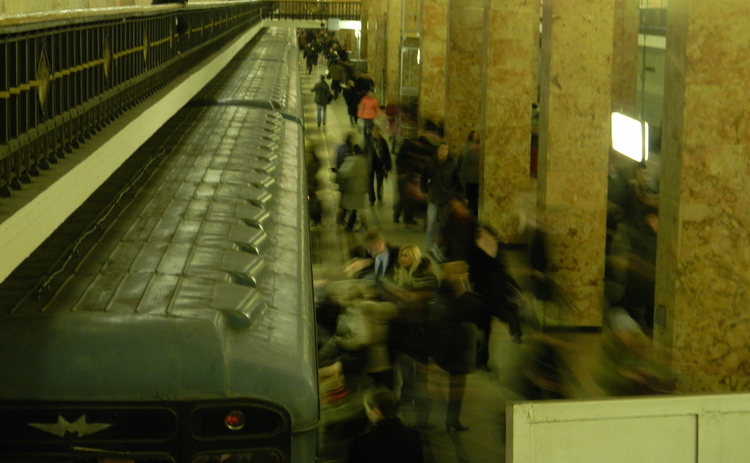Moves and Countermoves is a weekly column on developments of political importance and opposing reactions
Normal
0
false
false
false
EN-US
JA
X-NONE
/* Style Definitions */
table.MsoNormalTable
{mso-style-name:”Table Normal”;
mso-tstyle-rowband-size:0;
mso-tstyle-colband-size:0;
mso-style-noshow:yes;
mso-style-priority:99;
mso-style-parent:””;
mso-padding-alt:0in 5.4pt 0in 5.4pt;
mso-para-margin-top:0in;
mso-para-margin-right:0in;
mso-para-margin-bottom:8.0pt;
mso-para-margin-left:0in;
line-height:107%;
mso-pagination:widow-orphan;
font-size:11.0pt;
font-family:Calibri;
mso-ascii-font-family:Calibri;
mso-ascii-theme-font:minor-latin;
mso-hansi-font-family:Calibri;
mso-hansi-theme-font:minor-latin;}
Background
While Ukrainian MPs and leaders of the Right Sector have called on Chechen Islamists to open a second front against Russia, the Chechen government prepares to defend the Kremlin’s interests. Despite facing the most high-profile attacks in recent years, Chechen President Ramzan Kadyrov (and his private army of 20,000 men) remain firmly committed to eliminating the influence of radical Salafists and Wahhabis in the region.
Preparing to Defend Russia
“Putin has been helping our people for fifteen years,” the Chechen President said during a meeting with Chechen law enforcement officers. He continued, “America and Europe have declared economic war on Russia and are trying to sow chaos, panic, and mass disorders in the country…the Russian people have united around their leader Vladimir Putin … [and] the Chechen people in this unity occupies one of the central places.”
Kadyrov also said that special all-Chechen volunteer units are prepared to perform special acts for the Russian government which “can be solved only by volunteers” and not by “the regular army, air force, navy or nuclear forces.” What tasks he was referring to remains unclear, but it is likely that they involve supporting East Ukraine’s separatist republics (which Chechen ‘volunteers’ have long been involved with) or counterterrorism operations in Chechnya and neighboring oblasts.
New Counterterrorism Tactics
Grozny has recently implemented a new counter-terrorism strategy, which Kadyrov plans to personally lead. In this television interview, he describes the December attacks on the Chechen capital that has only strengthened his resolve. Elaborating on his own commitment, he describes how he swore on the Quran to fight Salafists and bandits, even if he has to leave his office to fight them himself.
Under the new strategy, “Each commander will be entrusted personally with tracking down one or another militant who is on a wanted list.” Kadyrov’s government hopes to nip this new wave of terrorism in the bud before ISIS-trained Chechen fighters can turn the North Caucasus into a “second Syria.”
Aftermath of the Charlie Hebdo Attacks
Kadyrov welcomed the denouncing of terrorism by world leaders and the millions of demonstrators in Paris. He also condemned the killing of unarmed people by terrorists, people he has “dedicated his life to fighting.” However, the Chechen strongman also expressed his suspicions that some “powerful forces” seek to incite an anti-Islamic mood in Europe in order to distract public attention from some brewing global problem.
He asked why “the presidents, kings and prime ministers have never led marches of protest against the deaths of hundreds of thousands of Afghans, Syrians, Egyptians, Libyans, Yemenis, and Iraqis? Why did they remain silent when terrorists exploded a bomb in the Chechen government HQ or when they blew up the Grozny stadium killing Chechen President Akhmad-Haji Kadyrov [Ramzan Kadyrov’s father] and his aides?
Rizvan Dadayev, the director of the territorial department for ties with religious and public associations announced a public rally last week in opposition of Charlie Hebdo’s depiction of Muhammad. The subsequent rally in Grozny held Monday 19 January was attended by tens of thousands as protesters carried signs opposing the “vulgarity, immorality, lack of culture, and shamelessness of those who drew the caricatures of the prophet.” While Kadyrov expected up to 1,000,000 attendees, Chechen officials have reportedly forced participation in previous government-sponsored protests.
While Russian Muslims condemn the attacks and express solidarity with the peace protestors, they in no way approve of the cartoons’ content, which is widely seen as having been an unnecessary agitation. Many fear that their republic is still vulnerable to homegrown militants with combat experience in the Middle East and that such depictions of the Prophet Muhammad will only increase tensions.
Going Forward
It is in this environment that there is increased concern of the competition between ISIS and al-Qaeda remnants spreading to the North Caucasus. Militant loyalties are already split in this oft-troubled region; some leaders swear allegiance to the Islamic State while others fearing the group could usurp their homegrown movement, which has historically featured an ideological blend of Jihadism and Caucasian nationalism.
Abu Muhammad, the emir of the Caucasus Emirate (the largest Islamist militant group in the region), harshly criticized IS supporters, telling them that they should “go to their caliph Abu Bakr al-Baghdadi and fight under his flag there, but not in Dagestan.”
What to Look For
It is likely that such power struggles will continue for the foreseeable future, with Caucasian insurgents struggling to fight against both the Moscow-backed Kadyrov government and the influence of foreign Jihadists in their region. Russian counter-terrorism efforts will increase in the North Caucasus to prevent the outbreak of general instability. Both al-Qaeda remnants and IS adherents will attempt to expand their sphere of influence beyond traditional areas of operation in the Middle East.

